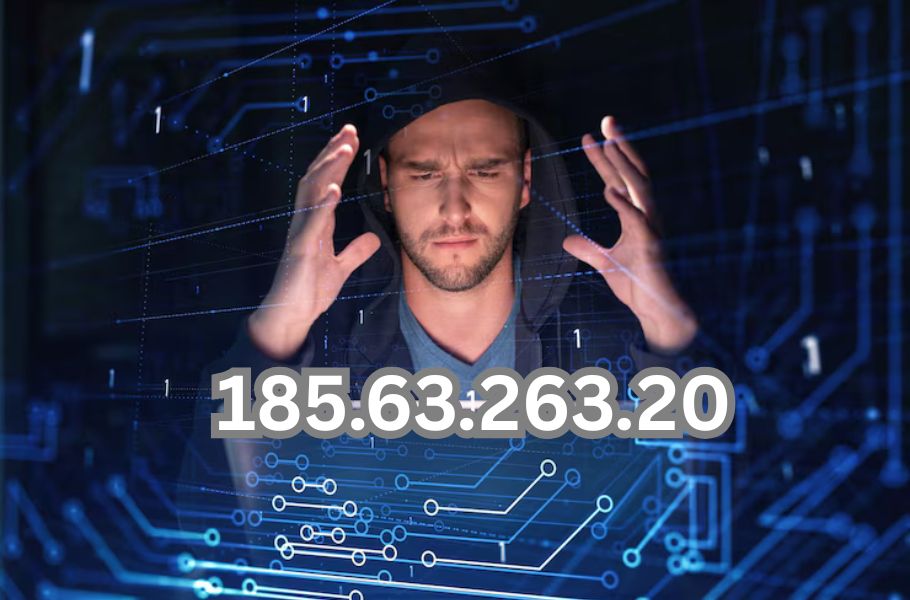Introduction
Every device connected to the internet relies on a unique identifier known as an IP address. One such example, 185.63.263.20, sparks curiosity for those exploring the fundamentals of networking, cybersecurity, and online infrastructure. Whether you’re a casual internet user, a business professional, or a tech enthusiast, understanding how IP addresses function provides insight into the backbone of the digital ecosystem. This article dives deep into what an IP address like 185.63.263.20 represents, its importance, challenges, and future trends, giving you a clear and practical understanding of its role in the modern online environment.
The Basics: What Is 185.63.263.20?
To understand 185.63.263.20, let’s break down the fundamentals:
- IP Address Definition: An Internet Protocol (IP) address is a numeric label assigned to devices connected to a computer network.
- Format: IPv4 addresses, like 185.63.263.20, are written in four sets of numbers separated by dots. Each section ranges from 0 to 255.
- Purpose: It identifies devices and enables communication between them across networks.
In practice, 185.63.263.20 could represent:
- A web server hosting a website.
- An endpoint used in corporate infrastructure.
- A router or gateway for internet service.
It’s worth noting that IP addresses like this one are not random. They’re allocated by regional internet registries (RIRs) and play a key role in directing traffic efficiently.
Why IP Addresses Like 185.63.263.20 Are Important
IP addresses underpin nearly everything we do online. Here’s why they matter:
- Connectivity – Without addresses like 185.63.263.20, your device couldn’t reach websites or servers.
- Location Identification – IPs help approximate the geographic region of devices, essential for security and personalization.
- Network Organization – Large organizations rely on structured IP systems to manage thousands of devices.
- Security Monitoring – Suspicious IPs can be flagged, blocked, or traced to prevent cyberattacks.
- Scalability – Unique identifiers allow billions of devices to connect to the global internet simultaneously.
Real-World Applications of 185.63.263.20 and Other IPs
1. Website Hosting
When you type a URL, it translates into an IP address behind the scenes. For instance, 185.63.263.20 might point to a server where a business website resides.
2. Cybersecurity Monitoring
Security teams frequently analyze IPs to detect malicious traffic. If unusual patterns emerge from 185.63.263.20, they might investigate further.
3. Enterprise Networks
Corporations assign specific IP ranges to internal systems. Addresses like 185.63.263.20 may serve as gateways or VPN endpoints.
4. Online Services
Streaming platforms, cloud services, and online games all rely on stable IP addresses to connect users with servers.
Challenges in Managing IP Addresses
While understanding 185.63.263.20 seems straightforward, managing IPs at scale brings challenges:
- IPv4 Exhaustion – With only 4.3 billion unique addresses, IPv4 space is limited. That’s why IPv6 adoption is critical.
- Dynamic vs. Static IPs – Many consumer connections change frequently, making it harder to track or block addresses like 185.63.263.20.
- Geo-Location Inaccuracies – IP-based location services aren’t always precise.
- Cyber Threats – Hackers exploit compromised IPs to launch attacks.
- Complex Allocation – Organizations often struggle to manage large IP pools efficiently.
Common Mistakes When Thinking About IPs Like 185.63.263.20
Even professionals sometimes misunderstand how IPs function. Here are frequent errors:
- Assuming One IP = One Device: In reality, multiple devices can share an IP through NAT (Network Address Translation).
- Ignoring IPv6 Transition: Businesses that don’t prepare for IPv6 risk falling behind.
- Over-Reliance on IP for Security: Blocking one suspicious IP doesn’t eliminate threats. Attackers often rotate addresses.
- Failing to Document Allocations: Poor record-keeping leads to IP conflicts and inefficiencies.
Strategies and Best Practices
If you’re dealing with addresses like 185.63.263.20, here are actionable strategies:
1. Proper Documentation
Always log which devices or services use a given IP. This prevents conflicts and simplifies troubleshooting.
2. Use Firewalls and Blacklists
Protect networks by monitoring suspicious activity from specific IPs. If 185.63.263.20 is flagged, block it temporarily while investigating.
3. Plan for IPv6
Future-proof networks by integrating IPv6 alongside IPv4. This ensures scalability.
4. Implement Subnetting
Break networks into smaller segments to improve performance and manageability.
5. Leverage IPAM Tools
IP Address Management (IPAM) software helps enterprises handle thousands of IPs efficiently.
Future Trends Related to 185.63.263.20
Looking forward, several trends will shape how IPs like 185.63.263.20 are used:
- Widespread IPv6 Adoption – With trillions of available addresses, IPv6 will become standard.
- Smarter Cybersecurity Systems – AI-driven tools will analyze IP traffic patterns in real-time.
- Cloud Expansion – More services mean greater demand for flexible IP allocation.
- IoT Proliferation – Billions of new devices will require unique identifiers.
- Enhanced Privacy Tools – VPNs and proxy services will mask IPs, giving users more control.
Frequently Asked Questions (FAQ)
Q1: What is 185.63.263.20?
It’s an IPv4 address, a numeric identifier for a device or server connected to the internet.
Q2: Who assigns IP addresses like 185.63.263.20?
Regional Internet Registries (RIRs) allocate IP blocks to internet service providers, businesses, or organizations.
Q3: Can I trace the location of 185.63.263.20?
Yes, but only approximately. Geo-IP tools can estimate the region, but accuracy varies.
Q4: What’s the difference between IPv4 and IPv6?
IPv4 uses 32-bit addresses (like 185.63.263.20), while IPv6 uses 128-bit addresses, allowing for far more unique combinations.
Q5: Is 185.63.263.20 safe to access?
That depends on what service it hosts. Always use caution when connecting to unfamiliar IPs.
Conclusion
The digital world wouldn’t function without IP addresses. From web browsing to cybersecurity, addresses like 185.63.263.20 serve as the hidden highways of the internet. While IPv4 has its limitations, it remains a cornerstone of modern networking. Businesses and individuals alike benefit from understanding how these identifiers work, their challenges, and the strategies to manage them effectively. As we move toward an IPv6-driven future, IP addresses will only grow in importance, continuing to power connectivity, security, and innovation across the globe.
